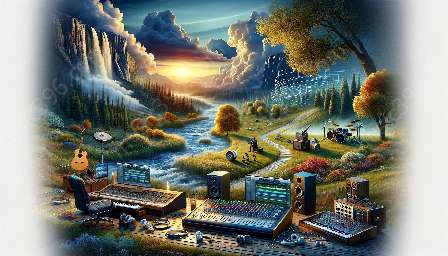Music holds a significant role in shaping individual and collective identity and is an integral aspect of societal culture. It influences our emotions, thoughts, and behaviors, contributing to the formation of personal and cultural identities. This article explores the multifaceted ways in which music shapes identity at both the individual and collective levels, shedding light on its profound impact on societies throughout history.
Understanding Music’s Impact
At its core, music is a universal language that transcends boundaries and connects people from different walks of life. Whether it be through traditional folk tunes, classical masterpieces, or contemporary pop songs, music has the power to convey powerful messages and evoke deep emotions. From childhood lullabies to anthems of resilience, music leaves an indelible mark on the human experience, shaping our sense of self and belonging.
Cultural Influences
Music serves as a mirror reflecting the values, traditions, and beliefs of a given culture. It provides a platform for cultural expression and identity preservation, perpetuating the stories and struggles of communities across generations. Whether it be through the vibrant rhythms of Latin American salsa, the soul-stirring melodies of Indian classical music, or the emotive storytelling of American blues, music encapsulates the essence of diverse cultures and carries their legacies forward.
Psychological Aspects
On an individual level, music plays a pivotal role in shaping personal identity and fostering a sense of belonging. It serves as a soundtrack to our lives, accompanying significant milestones and shaping our emotional landscapes. The music we resonate with often reflects our values, aspirations, and experiences, influencing how we perceive ourselves and relate to the world around us.
Sociological Perspectives
From protest songs that fuel social movements to national anthems that instill patriotism, music serves as a catalyst for collective identity. It unites people under shared ideologies, beliefs, and aspirations, creating a sense of solidarity and collective purpose. Throughout history, music has fueled revolutions, empowered marginalized communities, and amplified the voices of the oppressed, illustrating its role in shaping societal narratives and fostering social change.
Role of Music in Society
Music's impact on society is undeniable. It serves as a vehicle for social commentary, providing a platform for artists to address pertinent issues and provoke critical discourse. Whether it be through poignant lyrics, powerful rhythms, or captivating melodies, music has the power to galvanize movements, challenge social norms, and redefine cultural landscapes.
Cultural Preservation
Across the world, music acts as a repository of cultural heritage, preserving age-old traditions and narratives. It safeguards languages, dances, and rituals, ensuring they endure through the passage of time. Furthermore, music festivals and celebrations serve as platforms for cross-cultural exchange, fostering understanding and appreciation for diverse heritage and traditions.
Community Building
Music cultivates a sense of community, bringing people together to celebrate, mourn, and connect. Concerts, festivals, and communal performances serve as avenues for social cohesion, transcending barriers of race, religion, and socio-economic status. They provide a space for individuals to bond over shared musical experiences, fostering networks of support and belonging.
Social Movements
Throughout history, music has been a driving force behind social movements, serving as a unifying voice for change. From the civil rights era to contemporary activism, music has amplified the voices of marginalized communities, provided solace in times of adversity, and galvanized movements for equality and justice. It has the power to inspire, mobilize, and unite individuals in the pursuit of a common cause.
Music References
Throughout history, music has been an emblem of cultural expression and societal transformation. From the haunting melodies of the blues to the anthemic protest songs of the 1960s, music has left an indelible mark on human history. Some noteworthy references include:
- The Beatles: Pioneers of the British Invasion, the Beatles revolutionized popular music and became cultural icons, influencing a generation with their melodic innovations and thought-provoking lyrics.
- Nina Simone: Known as the 'High Priestess of Soul,' Nina Simone's powerful voice and socially conscious songs addressed issues of civil rights and social justice, leaving an enduring legacy in the realm of protest music.
- Bob Marley: Regarded as a global ambassador of reggae music, Bob Marley's music transcended borders and advocated for unity, peace, and social consciousness, leaving an indelible mark on the world stage.
- Bach and Beethoven: These eminent classical composers crafted timeless symphonies and sonatas that continue to resonate across generations, embodying the transformative power of classical music in shaping cultural identities.
It is evident that music transcends mere entertainment, serving as a profound force in shaping individual and collective identity and fostering meaningful societal change. As we continue to immerse ourselves in its rhythms and melodies, let us recognize the transformative power of music in shaping our identities and resonating with the collective conscience.









































